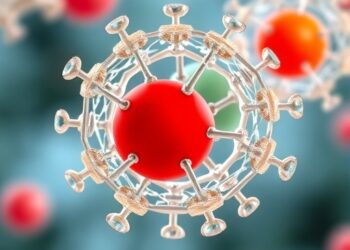A substantial portion of young athletes are at risk of hypertension, according to a study presented at the American College of Cardiology’s Care of the Athletic Heart conference, taking place on June 6-8 in Washington.
A substantial portion of young athletes are at risk of hypertension, according to a study presented at the American College of Cardiology’s Care of the Athletic Heart conference, taking place on June 6-8 in Washington.
High blood pressure, also known as hypertension, occurs in 47% of adults in the U.S., according to CardioSmart.org. Over time, hypertension weakens the heart, blood vessels and kidneys, paving the way for potential stroke or heart attack. Often referred to as the “silent killer,” high blood pressure is a leading risk factor for heart disease and early death.
The 2017 ACC/American Heart Association Guideline for the Prevention, Detection, Evaluation, and Management of High Blood Pressure in Adults redefined pre-hypertension (pre-HTN), Stage I hypertension (HTN) and Stage II HTN, yet limited data is available on how these updated classifications affect young athletes. In this analysis, the authors sought to assess the prevalence of hypertension among young athletes and evaluate the impact of the 2017 ACC/AHA guidelines on diagnosis rates using data collected from preventive heart screenings.
“The study highlights the importance of recognizing and addressing elevated blood pressure in young athletes. Despite being perceived as a generally healthy population, young athletes are not immune to heart disease, including elevated blood pressure. The findings emphasize that screening for hypertension should be a routine part of sports physicals and that confirmatory testing is needed to accurately diagnose the condition,” said lead author Aneeq Malik, MD, an internal medicine physician at Olive View-UCLA Medical Center in Los Angeles and medical director of the Saving Hearts Foundation.
Among the 1,429 participants screened, 1,196 had recorded blood pressure measurements. The cohort compromised 717 male (59.9%), 477 female (39.9%) and two gender non-binary (0.2%) participants. The ages of the participants ranged between 10 years to 31 years old, and the median age was 15 years old. The blood pressure recordings found that 21.3% of the participants met the definition of pre-HTN, 13.2% had Stage I HTN and 8% were diagnosed with Stage II HTN. The male participants had a higher prevalence Stage I HTN (17.3%) and Stage II HTN (10.9%), compared with the female participants who maintained 7.1% and 3.8% prevalence respectively. Young athletes who participated in multiple sports displayed the highest rates of HTN with a 28.3% prevalence, closely followed by basketball at 27.6% and football at 27.1%.
The findings reveal a significant prevalence of elevated blood pressure measurements among young athletes at these heart screenings. Confirmatory testing in a controlled environment is crucial to ensure accurate diagnosis, the researchers said.
According to the authors, here are several factors that could explain the higher rates of HTN among athletes in specific sports, such as individualized training routines unique to each sport, dietary habits for specific sports or positions, variations in average body size, and social determinants of health. The results of this study are consistent with previous studies that found that sports with higher levels of static exercise were associated with elevated blood pressure measurements. Football and basketball involve moderate levels of static exercise, which could contribute to the higher HTN rates.
“Once hypertension is confirmed, educating young athletes and their families about the diagnosis becomes paramount. Appropriate lifestyle interventions, such as dietary adjustments and counseling on supplement use, increased physical activity, healthy sleep behavior and stress management, should be implemented along with routine monitoring,” Malik said.
According to the researchers, appropriate lifestyle modifications could significantly impact blood pressure among young athletes and early detection is crucial for preventing long-term health complications.
“Ultimately, increasing awareness and education about hypertension in this population will help ensure that young athletes receive the care and support they need to maintain optimal cardiovascular health,” Malik said.
The American College of Cardiology (ACC) is the global leader in transforming cardiovascular care and improving heart health for all. As the preeminent source of professional medical education for the entire cardiovascular care team since 1949, ACC credentials cardiovascular professionals in over 140 countries who meet stringent qualifications and leads in the formation of health policy, standards and guidelines. Through its world-renowned family of JACC Journals, NCDR registries, ACC Accreditation Services, global network of Member Sections, CardioSmart patient resources and more, the College is committed to ensuring a world where science, knowledge and innovation optimize patient care and outcomes. Learn more at www.ACC.org or follow @ACCinTouch.
###




